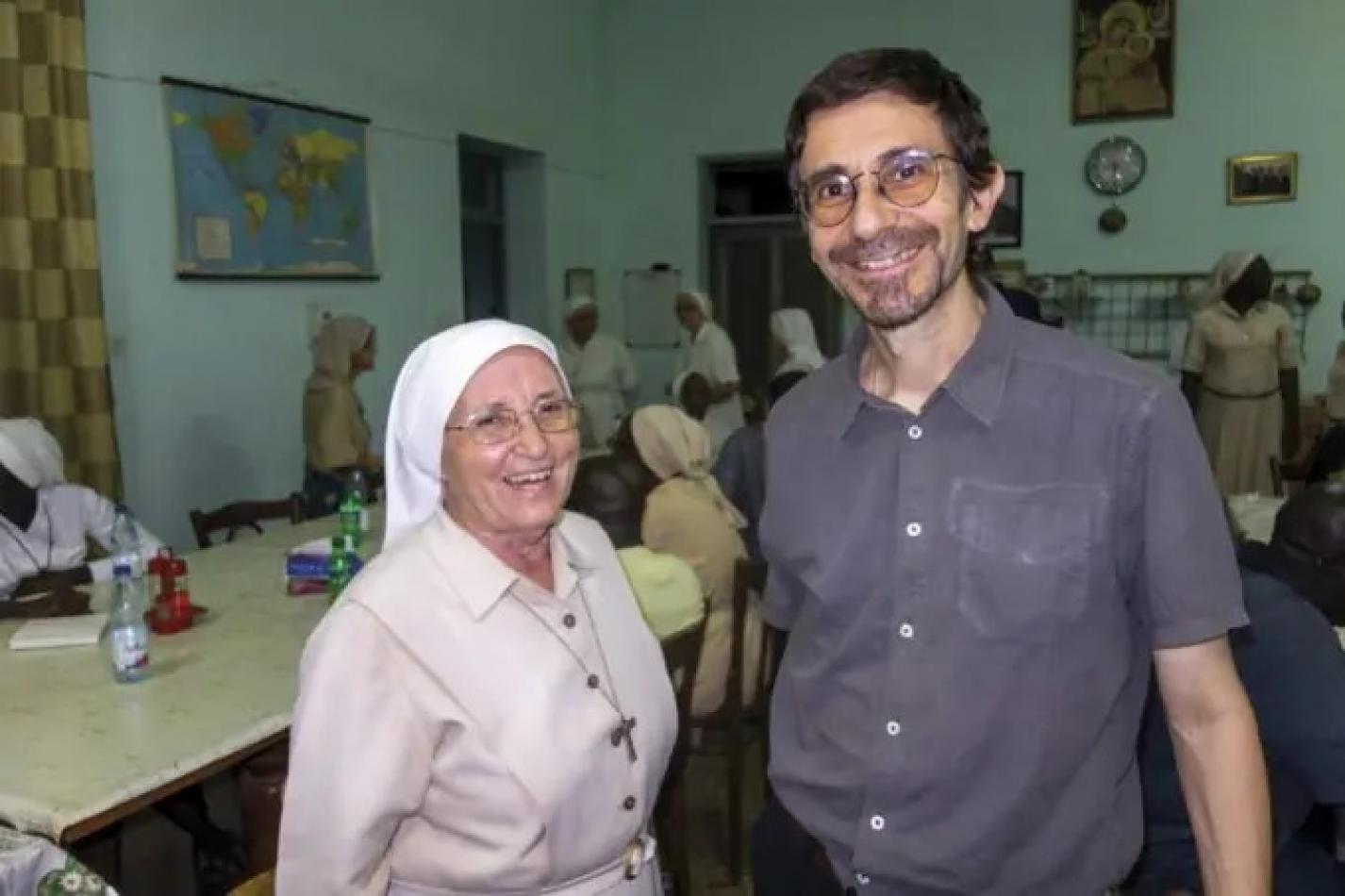Daniel Comboni
Comboni Missionaries
Institutional area
Other links
Newsletter
Monday, February 28, 2022
That Sunday I was returning to my community in Khartoum after celebrating Mass in one of the centers of the parish of Masalma (Omdurman) located on the outskirts of the city, where the desert and the city meet and those displaced by the wars of South Sudan and the Nuba Mountains had settled.
I wasn’t driving my car but the one from elementary school, a big Toyota Pajero better suited for trips off the asphalt of the city. The night was already spreading his mantle when I noticed that he had punctured. I stopped and in the dark I started looking for the tools to change the wheel. But it was too heavy to move alone. A person in jellabiya perceived that foreigner in difficulty and approached me to help me. After twenty minutes of joint work we managed to replace the flat tire. I invited him to drink a soft drink to regain the strength expended. But it was time for the evening prayer (al-maghreb) and he asked me to allow him to go to the mosque so as not to be late. He left me his name and phone number in case I wanted to invite him to the soda at another time.
That person had approached me like the Good Samaritan when he saw me in difficulty, expressed his willingness to help me, listened to me, understood me, we met and faced a problem together. That person who knelt with me to change the wheel was the general director of one of the faculties of the “Sudan University of Science and Technology”. It is curious because four years later I would occupy the same position at the Comboni College of Science and Technology and thirteen years later I would complete my doctorate at his university.
In “Fratelli tutti” Pope Francis defines dialogue as a path that includes the following verbs: “To approach, to express oneself, to listen to oneself, to look at oneself, to know oneself, to try to understand oneself, to seek points of contact” (FT 198). In one way or another all these verbs are present in that simple encounter around a flat tire.
Over the years, similar experiences have marked my missionary journey in Sudan, particularly through my ministry at the Comboni College of Science and Technology, where almost half of the students and most of the teaching staff are of Islamic faith, and through an incubator of digital companies. Together we seek to educate our young people at the service with a model that seeks to integrate their cultural diversity and create social cohesion particularly with what the peripheries of the metropolitan area of the capital inhabit, they come to us from the peripheries of the country (Darfur, Montes Nuba, Kasala …) or refugees of Eritrean or South Sudanese origin.
Walking together we learn to go beyond the preconceptions we have about brothers of faith or diverse culture and discover the beauty of a polyhedron “where differences coexist complementing, enriching and illuminating each other” (FT 215).
Fr. Naranjo Alcaide Jorge Carlos, MCCJ
(In the picture above with the Comboni Sister Conchita López in Sudan)
[combonimission.net]




